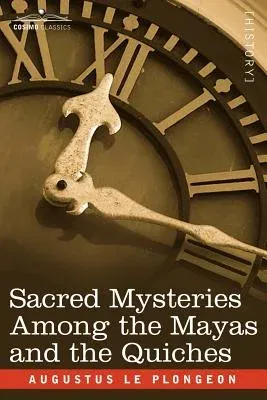Augustus Le Plongeon
(Author)Sacred Mysteries Among the Mayas and the QuichesPaperback, 1 April 2007

Qty
1
Turbo
Ships in 2 - 3 days
In Stock
Free Delivery
Cash on Delivery
15 Days
Free Returns
Secure Checkout
Print Length
184 pages
Language
English
Publisher
Cosimo Classics
Date Published
1 Apr 2007
ISBN-10
1602062439
ISBN-13
9781602062436
Description
Product Details
Author:
Book Format:
Paperback
Country of Origin:
US
Date Published:
1 April 2007
Dimensions:
22.86 x
15.24 x
1.07 cm
ISBN-10:
1602062439
ISBN-13:
9781602062436
Language:
English
Pages:
184
Publisher:
Weight:
276.69 gm

